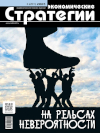Methodological Model for Studying the Spanish Political Mentality
DOI: 10.33917/es-3.201.2025.14-21
Spanish political mentality is a historically determined, multidimensional and systemic result of a long multi-ethnic and transcivilizational process. To study it, a methodological concept of imprinting was used, which was firstly substantiated within the framework of the present study. The article formulates the concept of the imprinting-suggestion phenomenon, the basic structural elements of which are represented primarily by epochal political events, as well as great cultural figures and outstanding governors. Taking into account these invariant predictors, critical periods in the history of Spain that influenced the course of its political mentalization are discussed. Based on methodological potential of the imprinting concept, its root sources — romanization and christianization — are revealed. The article examines the evolution specifics of polymentality in Moorish Spain, emergence of Spanish Catholicism and significance of the Reconquista in forming the foundations of the Spanish mentality. These and other key moments in the history of the Kingdom of Spain from this perspective are still awaiting their researchers. The final section provides an analytical review of the philosophical and theological principles of the Spanish political mentality.
References:
1. Abellan J.L. Los españoles vistos por si mismos. Madrid, 1977.
2. Rodríguez-San Pedro L.E. La Edad Moderna: Universidades de la Monarquía Católica. Plétora y diversidad. Universia. España: Universidades, 2013, available at: // https://es.scribd.com/document/358750879/Edad-Moderna-Universidades-Monarquia-Catolica-Pletora-Diversidad
3. Ajo G. y Sáinz de Zúñiga C.M. Historia de las Universidades Hispánicas: orígenes y desarrollo desde su aparición hasta nuestros días. Madrid: Centro de Estudios e Investigaciones “Alonso de Madrigal”, 1957–1979.
4. Francisco Díez de Velasco. Religiones en España. Historia y presente. Madrid — España, 2012.
5. Spain — UNESCO World Heritage Convention, available at: // https://whc.unesco.org/en/statesparties/es
6. Kaptereva T.P. Iskusstvo Ispanii. Srednie veka. Epokha Vozrozhdeniya [Art of Spain. Middle Ages. Renaissance]. Moscow, 1988, p. 248.
7. Tuñón de Lara М. El hecho religioso en España. 1968.
8. Elliot J.H. La España imperial, 1469–1716. Barcelona: Edotorial Vicens-Vives, 1987.
9. Fernandez Calzada M. Heterogeneous cultural-historical West: Spanish-Catholic civilization; Spanish America; China and the Spanish, the world’s first, globalization. Biocosmology — neo-aristotelism, vol. 14, no. 1&2, Winter/Spring, 2024, pp. 88–126.
10. Shaw D.L. La generación del 98. Madrid: Ediciones Cátedra, 1977.
11. Ortega y Gasset J. Ensayos sobre la “Generación del 98” y otros escritores españoles contemporáneos. Madrid, Alianza, 1981.
12. 11. Rakityanskiy N.M. Mental’nye issledovaniya global’nykh politicheskikh mirov [Mental Explorations of Global Political Worlds]. Moscow, Izd-vo Moskovskogo universiteta, 2020, pp. 22–30.
13. Yakovleva L.E. Ispanskaya filosofskaya traditsiya v XX veke: sotsiokul’turnyy analiz [The Spanish Philosophical Tradition in the Twentieth Century: A Sociocultural Analysis]. Moscow, 2003, pp. 92.
14. Pak E.S. Sravnitel’no-kul’turnyy analiz sistemy osnovnykh tsennostey russkikh i ispantsev [Comparative Cultural Analysis of the System of Basic Values of Russians and Spaniards]. Vestnik slavyanskikh kul’tur, 2008, no 3–4(10), pp. 142–151.
15. Bagno V. Rusia y España: la frontera común. Granada, Universidad de Granada, 2016.
16. Zadorozhnyuk I.E. Fenomen suggestii i kontrsuggestii voyn i revolyutsiy: V poiskakh novogo: Sb. nauch. statey i retsenziy [The Phenomenon of Suggestion and Counter-Suggestion of Wars and Revolutions: In Search of the New: Collection of Scientific Articles and Reviews]. Moscow, MPA-Press, 2021, pp. 287–328.
17. Yaroslavtseva E.I. Tsifrovye seti i suggestiya v tkani kommunikatsiy [Digital Networks and Suggestion in the Fabric of Communications]. Observatoriya kul’tury, 2021, vol. 18, no 6, pp. 591.
18. Porshnev B.F. Kontrsuggestiya i istoriya [Counter-suggestion and History]. Istoriya i psikhologiya. Moscow, Nauka, 1971, pp. 7–35.
19. Stepanova M.A.S.L. Rubinshteyn i P.Ya. Gal’perin: sopostavlenie pozitsiy po probleme interiorizatsiy [S.L. Rubinstein and P.Ya. Galperin: Comparison of Positions on the Problem of Internalizations]. Psikhologicheskiy zhurnal. Moscow, 2019, no 2, pp. 94–104.
20. Uilson R.A. Psikhologiya evolyutsii [Psychology of Evolution]. Moscow, Sofiya, 2005, p. 37.
21. Diеgo Gracia. Voluntad de Verdad. Para leer a Zubiri. Madrid: Triacastela, 1986, p. 129.
22. Rakityanskiy N.M. Fenomen dogmaticheskogo myshleniya v politicheskoy psikhologii: opyt teoreticheskogo analiza [The Phenomenon of Dogmatic Thinking in Political Psychology: An Experience of Theoretical Analysis]. Vestnik Moskovskogo un-ta, Seriya: 12. 2020, no 5, pp. 25–43.
23. Losev A.F. Dialektika mifa [Dialectics of Myth]. Moscow, 2008, pp. 35–36.
24. Ageev A.I. Preobrazhenie: vetkhozavetnye predvoskhishcheniya i novozavetnye smysly [Transfiguration: Old Testament Anticipations and New Testament Meanings]. Moscow, INES, RUBIN, 2017, pp. 261–263.
25. Porshnev B.F. O nachale chelovecheskoy istorii: problemy paleopsikhologii [On the Beginning of Human History: Problems of Paleopsychology]. Nauch. red. O.T. Vitte. Saint Petersburg, Aleteyya, Istoricheskaya kniga, 2007.
26. Ukhtomskiy A.A. Dominanta [Dominant]. Moscow, Public Domain, 2019, p. 59.
27. Collier R.B., Collier D. Shaping the Political Arena: Critical Junctures, the Labor Movement, and Regime Dynamics in Latin America. Princeton: Princeton University Press, 1991.
28. Miller T.A. Isidor Sevil’skiy: Pamyatniki srednevekovoy latinskoy literatury IV–IX vekov [Isidore of Seville: Monuments of Medieval Latin Literature of the IV–IX Centuries]. M.L. Gasparov, M.E. Grabar’-Passek (otv. red.). Moscow, Nauka, 1970, p. 197.
29. Fraga Iribarne M. España en la encrucijada. Madrid, 1976, p. 16.
30. Tsirkin Yu.B. Istoriya Drevney Ispanii [History of Ancient Spain]. Saint Petersburg, 2011, pp. 5, 6.
31. Pérez Rojas M. El nombre de Tartessos: Tartessos y sus problemas. 1969, pp. 369–378.
32. Schulten A. Ein Beitrage zur ältestens Geschichte des Westens. Hamburg, 1922.



